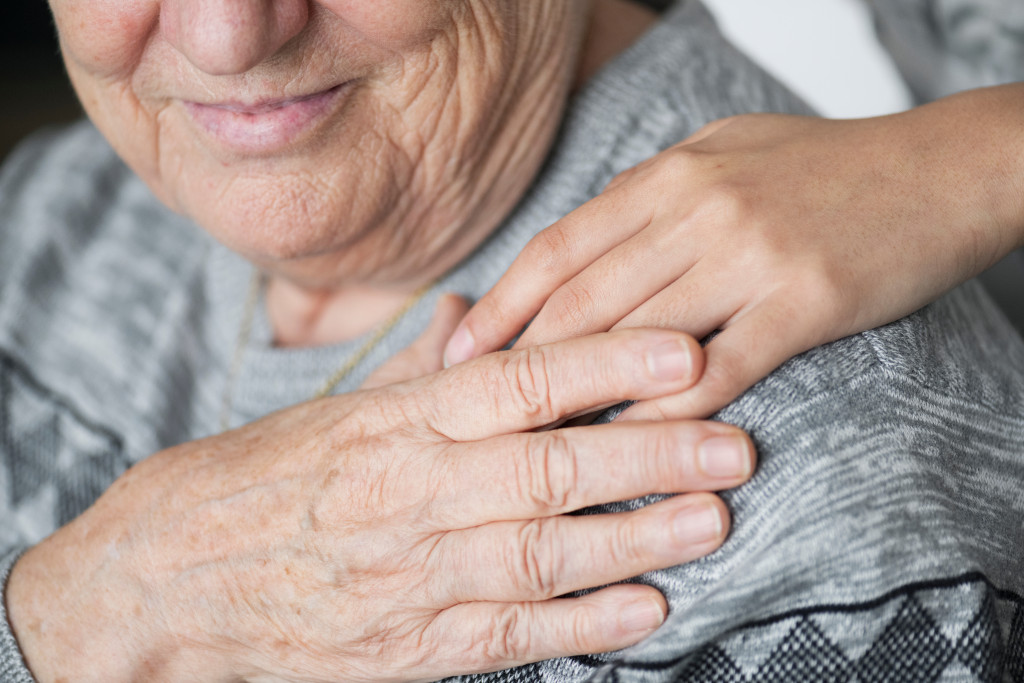Millions of elderly Americans live at home, and many rely on their families for assistance. It’s essential to consider their safety when helping an elderly loved one stay safe in their home.
Remember that slips and falls are common causes of injuries among the elderly. According to the Centers for Disease Control and Prevention (CDC), falls are the leading cause of injury-related deaths in adults aged 65 and over. Other common injuries include burns, poisonings, and car accidents.
Here are several things you can do to help an elderly loved one stay safe in their home.
1. Get to know their daily routine and look for any changes
As we age, it becomes increasingly important to maintain our independence. That means staying in our own homes for as long as possible for many of us. However, aging can also lead to a decline in physical and cognitive abilities, making it difficult to live safely on our own.
If you have an elderly loved one living at home, it’s essential to get to know their daily routine to see any changes that might indicate a decline in their health or well-being. For example, if they suddenly stop taking their usual walk around the block or going to the grocery store, this could be a sign that they are feeling too weak or unsteady to venture out on their own.
Other red flags include changes in eating and sleeping patterns, decreased personal hygiene, or difficulty performing tasks that were once easy for them. If you notice any of these changes, don’t hesitate to reach out to their doctor or another trusted source of support.
By staying attuned to their daily routine, you can help ensure that your elderly loved one remains safe and healthy at home.
2. Keep all entrances and exits clear of obstacles
One of the best ways to prevent falls is to ensure that all entrances and exits are clear of obstructions. You need to eliminate tripping hazards such as throw rugs, cords, and clutter from hallways and stairways.
You should also install handrails on all stairways and ensure that railings are in good repair. Walkways and entryways should be well-lit so that your loved one can see where they are going.
3. Install grab bars and non-slip mats in the bathroom and shower
As people age, they often find it more challenging to maintain their balance and move around their homes safely. This can be a problem in the bathroom, where slippery surfaces and a lack of support can lead to serious injuries.
To help an elderly loved one stay safe in their home, install grab bars and non-slip mats in the bathroom and shower. Grab bars can provide support when getting in and out of the shower or moving around the toilet. Non-slip mats can help to prevent falls by providing a stable surface.
Other bathroom safety equipment includes raised toilet seats and shower chairs. You can also use these to help an elderly loved one stay safe in their home.

4. Make sure they have a working fire alarm and carbon monoxide detector
You should also help an elderly loved one stay safe in their home by making sure they have a working fire alarm and carbon monoxide detector.
Carbon monoxide is an invisible, odorless gas that can cause serious health problems and even death if inhaled in high concentrations. A fire alarm will help to alert your loved one to the presence of smoke or flames, giving them time to evacuate the premises.
You should test both devices regularly to ensure that they are working correctly. In addition, it is a good idea to create a fire escape plan with your loved one, so that they know what to do in a fire.
5. Check that they have enough light in their home, especially at night
Poor lighting can lead to falls, making it difficult for seniors to move around their homes safely. Unfortunately, many seniors live in homes that are not well-lit, either because they cannot afford to pay for electricity or because they are unable to reach light switches.
So it is crucial to check that your elderly loved one has enough light in their home, especially at night. You may need to install additional light fixtures or bulbs, or light switches within easy reach.
Because seniors are at an increased risk for falls, it is essential to take steps to help them stay safe in their homes. Some simple measures include getting to know their daily routine, keeping all entrances and exits clear of obstacles, and installing grab bars and non-slip mats in the bathroom and shower.
You should also ensure they have a working fire alarm and carbon monoxide detector and that their home is well-lit. You can help ensure that your elderly loved one remains safe and healthy at home by taking these steps.


